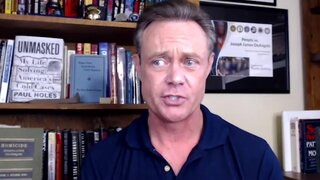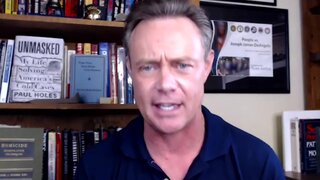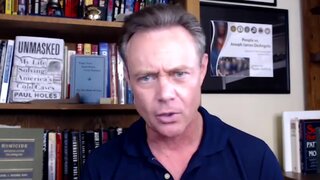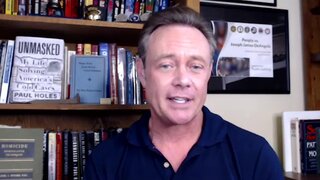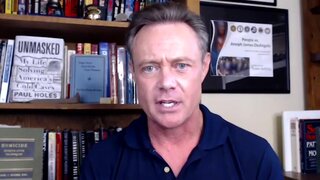Retired Investigator Paul Holes On Why Became A Criminologist, Trauma, And His New Book
Paul Holes' memoir "Unmasked: My Life Solving America's Cold Cases" takes a dive into his work solving crimes, including investigating the Laci Peterson and Jaycee Dugard cases.
Oxygen Book Club highlights books in the crime sphere each month and features exclusive interviews, guided discussions, and more.
Paul Holes is one of the more famous figures in the true crime world: The former criminal profiler and cold case investigator has worked on some of the most notorious cases in the United States, including the Laci Peterson murder and the hunt for the Golden State Killer. He even has his own Oxygen show "The DNA Of Murder with Paul Holes." Now, he's reflecting on his lengthy career in a new memoir.
Holes' book, "Unmasked: My Life Solving America's Cold Cases" takes a look at the many investigations that have stuck with Holes over the years, as well as his journey into the world of criminology and the way his line of work has affected him. It's a gripping and thoughtful read, which made it the perfect choice for Oxygen Book Club's May 2022 pick.
In a recent interview Holes spoke with Oxygen digital correspondent Stephanie Gomulka about some of the famous cases he's worked on, how he deals with trauma, and why he decided to write this book, which you can watch in the video, below.

"I think that the spark [of interest in solving crimes] really started with that TV show 'Quincy.' I was fascinated as a boy watching that show and thought, 'I want to be a forensic pathologist, I want to be like Quincy,' not really knowing what forensic pathology was at the time," Holes said of his interest in criminology.
Originally he studied biochemistry while in college with plans to go to medical school. His grades weren't quite good enough for that, it turned out — but a chance meeting at a job fair changed everything.

"[I met] Victor Reeves, who taught me about criminologists. I was like, 'You mean I can go to the autopsies, I can go out to crime scenes and the labs and do science to help solve crimes? I'm sold.' That become my passion, my focus to become a criminologist and apply science to solve crimes," he explained.
When asked about the difference between the way crime is portrayed on television versus the way investigations go in real life, Holes is conflicted.
"You don't want to unnecessarily expose people to things they don't need to see or experience but at the same time you want people to see and understand what victims have gone through, what real crime looks like, what people that are working through these cases are having to deal with ... my book hopefully in the written form can convey enough information so my readers can say, 'Oh, what I'm seeing on TV is not real' — no matter how graphic they try to make it, you aren't getting the full effect of being on the crime scene with a dead body and recognizing that is a real person," Holes mused.

To learn more about his investigative work and the book, watch the videos, above.
